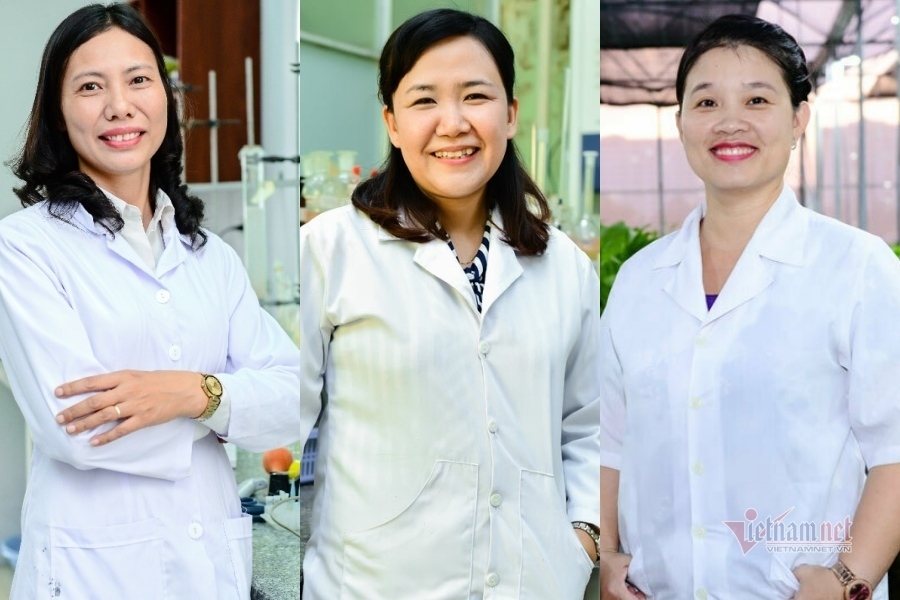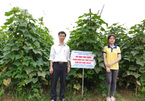According to Van, fossil fuels including petrol, oil and gas are becoming exhausted, while the use of the fuels are causing serious consequences to the environment.

Dr Ho Thi Thanh Van (middle)
To prevent disasters, humans need a type of renewable energy which allows vehicle engines and electronic appliances to operate without fuel.
Fuel cell is an electrochemical device that converts chemical energy into electrical energy through electrochemical reactions. With input materials, hydrogen, methanol, ethanol and oxidants such as oxygen, electricity and water are generated.
This is an energy device with a pollution level of almost zero, environmentally friendly and renewable. When used, a fuel cell does not cause noise, while the water generated after the reaction is clean water that can be used for living or irrigation.
The typical difference between traditional cells and fuel cells is that the latter does not need recharging. It only needs continued input materials and air to create a discontinued electricity current.
However, the commercialization of this fuel cell is meeting obstacles, including high cost, low reserves and instability of platinum catalyst (Pt) and the possibility of being easily poisoned by intermediates such as CO or CHO.
Normal fuel cells comprise hydrogen, methanol, ethanol, oxidants and two electrodes made of conductive metals such as platinum (Pt) and graphite. Among these components, Pt makes the production cost high, while graphite is not durable and toxic.
That is why Van has developed a new multifunctional material in the form of Pt-Mo alloy nano on Ti0, 8W0 and 2O2 nanomaterials to improve CO toxicity resistance capability.
The material was developed by Van to replace 25 percent of platinium amount needed. Experiments show that the new material improves the performance of the alloy in comparison with pure Pt.
The replacement with the new material also reduces the manufacturing cost and improves the operation capability and durability of fuel cell.
The new type of fuel cell has production cost 20 percent lower than a normal product. A system of new-type fuel cells costs VND240 million instead of VND300 million as previously seen.
According to Van, her research team has faced difficulties during research, especially lack of money and modern equipment. However, after six years of research, the team has gained initial achievements.
The research project was ordered by the Ministry of Natural Resources and the Environment (MONRE). It is expected that Vietnam will be able to use the renewable energy source in the future.
Le Ha

VN scientists say it is difficult to commercialize inventions
Many products have an average life expectancy of 10-15 years. If they cannot be commercialized, they will be 'put in mothballs' , said Nguyen Tan Dung, Chemical Technology and Food Dean of the HCM City University of Technology and Education.

Scientist makes slow-release fertilizer, the first of its kind in Vietnam
The ‘smart’ fertilizer, used once per crop, saves money and labor, and reduces environmental pollution.
 With a passion for renewable energy development, Ho Thi Thanh Van from the HCM City University of Natural Resources and the Environment has created research breakthroughs in the use of fuel cells, an important source of clean energy of the future.
With a passion for renewable energy development, Ho Thi Thanh Van from the HCM City University of Natural Resources and the Environment has created research breakthroughs in the use of fuel cells, an important source of clean energy of the future.